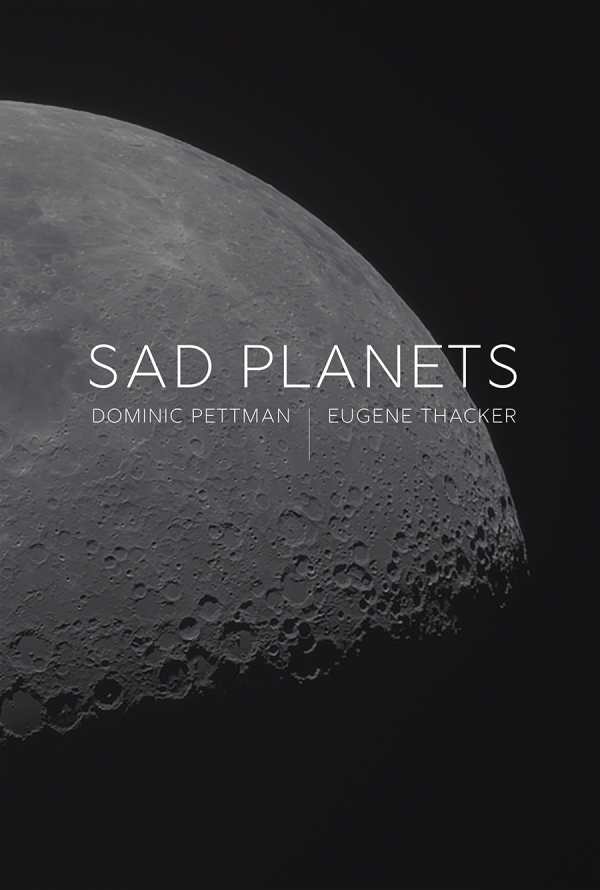Sad Planets
Dominic Pettman and Eugene Thacker’s expansive book Sad Planets contemplates humanity’s troubled perception of climate change and perhaps diminishing cosmic presence.
The book sprawls across a captivating informational universe with Earth as its dubious center. The eventual disappearance of Saturn’s rings is noted (predicted within the next 300 million years) alongside Dutch scientist Christiaan Huygens’s initial telescopic observation of the ringed celestial body in the 1650s. Further explored within the interplanetary realm are various space missions and resultant “space junk,” along with continuing speculation regarding alien life.
With eclectic references to Carl Sagan, Lord Byron, and W.E.B. Du Bois, the book notes that increased socioecological consciousness brought about the development of “climate culture,” which ranges from earnest activism, political polarization, “corporate ‘off-world’ initiatives,” to “the latest Hollywood disaster film.” The book’s extreme weather notations are summaries of recent environmental horrors and otherwise unsettling events; these include the “biblical kiln” of the 2020 Australian bushfires, and the fact that Earth’s distinct blue luster is reported to be dimming as the planet’s oceans become “too polluted to function.”
Linked to climate decline are the possibility of human extinction and growing universal malaise; beyond the cross-cultural connection of the internet looms an undertow of disinformation and “hyper-mediated environments.” Yet prior to accessible scientific resources, the book says, bewilderment once prevailed. Though 1816’s “Year without a Summer” was caused by the aftereffects of Indonesian volcanic activity, the season’s sunless skies, colder temperatures, and prolonged rains caused many Europeans and North Americans to fear an impending apocalypse.
Provocative, wry, and eloquent, the philosophy text Sad Planets muses on interplanetary topics to convey a sense of global urgency and inchoate loss.
Reviewed by
Meg Nola
Disclosure: This article is not an endorsement, but a review. The publisher of this book provided free copies of the book to have their book reviewed by a professional reviewer. No fee was paid by the publisher for this review. Foreword Reviews only recommends books that we love. Foreword Magazine, Inc. is disclosing this in accordance with the Federal Trade Commission’s 16 CFR, Part 255.

